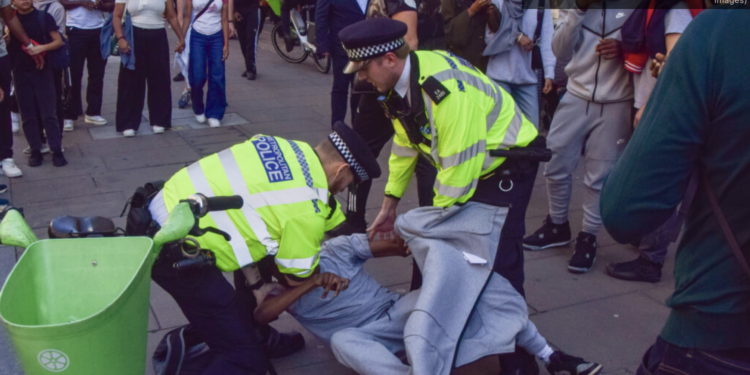Bexleyheath has reintroduced lockdown measures in response to rumours of ‘TikTok-fueled looting’. In an op-ed for UnHerd, Doug Stokes reflects on his own experiences growing up in Hackney, and how London today is a far cry from the multicultural harmony he remembers. Here’s an excerpt:
Lockdown reportedly returned to Bexleyheath on Saturday. As rumours about an impending wave of ‘TikTok-fuelled looting’ circulated on social media, shopkeepers debated whether it was safe to unlock their doors. Eventually they did, but only after a dispersal order was issued, handing the police additional powers to snuff out antisocial behaviour. No doubt the Met’s officers hoped to avoid a repeat of the carnage that had unfolded earlier in the week, when gangs of children ran amok on Oxford Street, allegedly in the hope of ransacking a JD Sports.
Central London isn’t “safe anymore”, led one report after the mayhem. Countless others carried a similar message: that lawlessness had returned to the capital’s streets.
You will forgive me if I reserve my shock and outrage. I was born in Hackney, East London, in the early Seventies, when such scenes regularly played out in working-class communities to little or no media fanfare. My inner-city state schools were more like prisons, and by the time I was 18, I had seen more acts of violence than I care to remember. …
Despite the horrors, my memories of Hackney remain mixed. As violent and poor as it once was, there was always a sense of solidarity. The settled white working-class communities were nearly always at the sharp end of the policies imposed by successive post-war governments, almost all without democratic consent. Mass immigration radically altered those communities, but they largely muddled along as best they could, forming cross-cultural social norms. At my grandmother’s funeral, mourners from every race gathered to commemorate the life of a white working-class cockney matriarch. Born into desperate poverty to a widowed mum with seven kids in the thirties, she formed deep bonds with the first-generation Afro-Caribbean mums who, as they grew older, would look out for each other.
Over the past decade, however, such multiracial harmony has slowly been replaced with new cultural norms centred around self-expression and hyper-individualism. The civilising nature of national identity and shared values – precisely those that held together the long put-upon British working class, black and white – are now viewed as gauche and unreconstructed concepts. In their place, today’s cultural narratives divide society along identity lines. If it erases the agency and ‘lived experience’ of long-established working-class communities and casts the U.K. as a racist hellhole, so be it.
Worth reading in full.











To join in with the discussion please make a donation to The Daily Sceptic.
Profanity and abuse will be removed and may lead to a permanent ban.